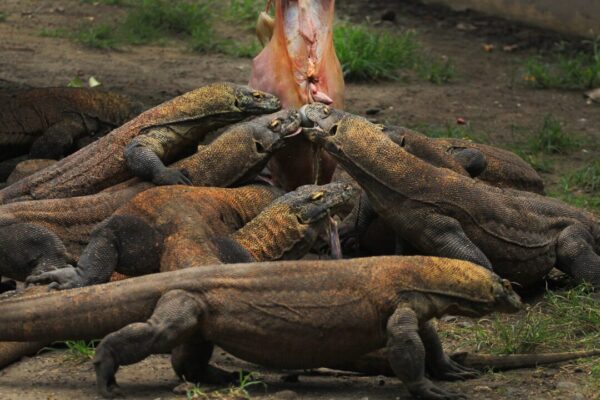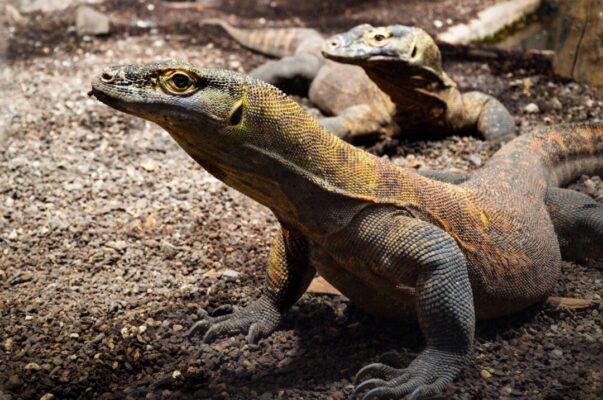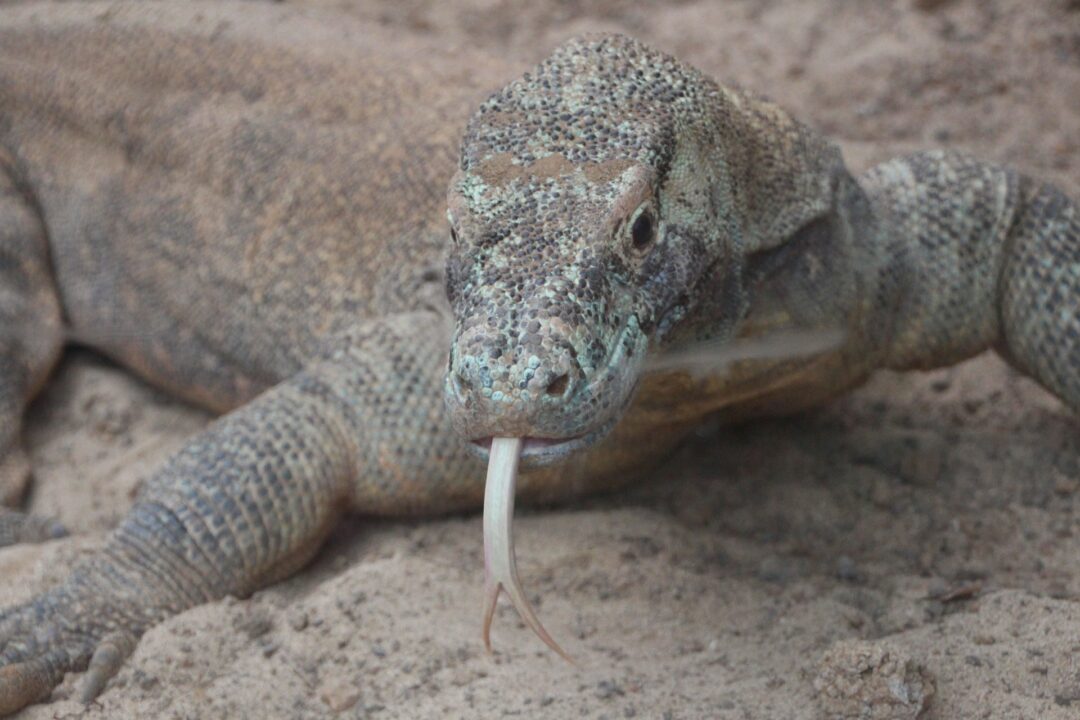Komodo dragons, also known as the Komodo monitors, are the largest species of lizards in the world and are native to the Indonesian islands.
These reptiles have been around for millions of years and have become an iconic symbol of the Indonesian islands.
Their intimidating appearance, large size, and powerful jaws have earned them a reputation as deadly predators. But can a Komodo dragon kill you?
This article will delve into the biology, behavior, and dangers of these fascinating creatures.
Biology and Physical Characteristics of Komodo Dragons
Komodo dragons are massive reptiles that can grow up to 10 feet long and weigh up to 300 pounds.
They have muscular bodies, strong legs, and powerful jaws that can crush the bones of their prey.
Their skin is covered in tough, scaly armor that protects them from bites and scratches.
They also have a long, forked tongue that they use to detect their prey and a keen sense of smell that can detect carrion from miles away.
Diet and Hunting Behavior of Komodo Dragons

Komodo dragons are carnivores and feed on various prey, including deer, pigs, horses, and water buffalo.
They are solitary hunters and stalk their prey before attacking with lightning-fast speed.
Their powerful jaws can crush the bones of their prey, and they have razor-sharp teeth that can tear through flesh and muscle.
They also have anticoagulant bacteria in their saliva, which can cause severe bleeding in their prey and make it easier for them to catch their next meal.
Can A Komodo Dragon Kill You?
Yes, a Komodo dragon can kill a human, although rare.
Komodo dragons are the largest species of lizard and can grow up to 10 feet in length and weigh over 300 pounds.
They have powerful jaws, sharp teeth, and a toxic bite that can cause severe bleeding and infections.
However, attacks on humans are not common and usually occur when the animal is provoked or feels threatened.
Treating all wild animals with caution and respect and never approaching a Komodo dragon too closely is essential.
If you encounter a Komodo dragon in the wild, it is best to slowly and calmly move away from the animal.
Here are some tips to avoid confrontations with Komodo dragons:
- Never approach a Komodo dragon too closely. Give them plenty of space and respect their personal boundaries.
- Do not feed the Komodo dragons. It can make them associate humans with food and increase the likelihood of an attack.
- Do not try to touch or handle a Komodo dragon. Their skin is covered in bacteria, and a bite from a Komodo dragon can result in serious infections.
- If you encounter a Komodo dragon, remain calm and slowly back away. Do not run, as this may trigger a chase response.
Can You Survive A Komodo Dragon Bite?

While it is possible for a person to survive a Komodo dragon bite, it is not guaranteed.
A Komodo dragon’s bite can be extremely dangerous, as its saliva contains several types of bacteria that can cause severe infections.
Additionally, the strength and sharpness of their teeth can cause significant tissue damage.
In serious cases, a bite from a Komodo dragon can lead to death if left untreated.
Prompt and proper medical treatment, such as wound cleaning and antibiotics, is essential for increasing the chances of survival.
However, it is important to remember that Komodo dragons are protected wildlife and should not be approached or provoked.
It is best to observe them from a safe distance and respect their natural habitat.
Has A Komodo Dragon Eaten A Human?
Yes, there have been instances of Komodo dragons attacking and eating humans.
However, such incidents are very rare and usually occur when a human gets too close to a Komodo dragon’s territory or provokes the animal.
It’s important to remember that Komodo dragons are large, powerful predators and should be treated with caution and respect.
That being said, attacks on humans by Komodo dragons are relatively uncommon, and most interactions between these animals and people are peaceful.
How Many Humans Have Komodo Dragons Killed?
Komodo dragons can kill humans, but such incidents are relatively rare.
In the past few decades, there have been several reported cases of Komodo dragons attacking and killing humans, but the exact number of fatalities is difficult to determine.
It’s important to note that these attacks are usually the result of human behavior that provokes or threatens the dragon, such as encroaching on its territory or attempting to feed or handle them.
Komodo dragons are generally not aggressive towards humans unless they feel threatened or provoked, so it’s important to take precautions when visiting their habitats and to always follow the guidelines provided by local authorities.
Conclusion
Komodo dragons are fascinating and powerful creatures that have captured the imagination of people all over the world.
Although they are not naturally aggressive toward humans, they must be treated with respect and caution.
If you encounter a Komodo dragon, it is best to remain calm and slowly back away.
By following these simple guidelines, you can help ensure your safety and the safety of these magnificent creatures.

